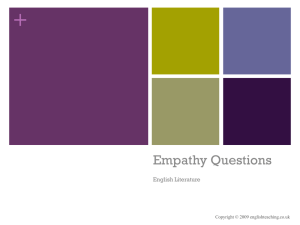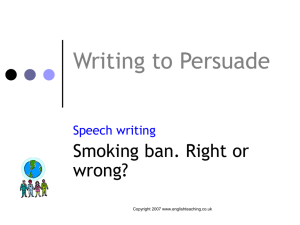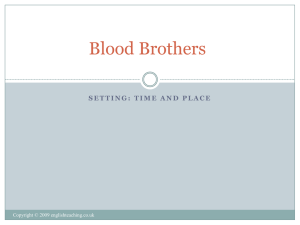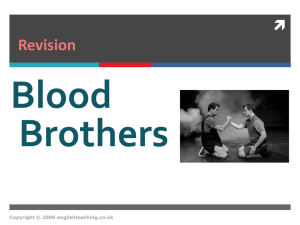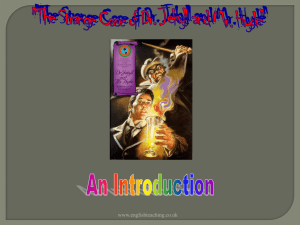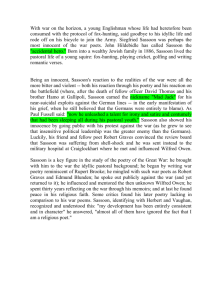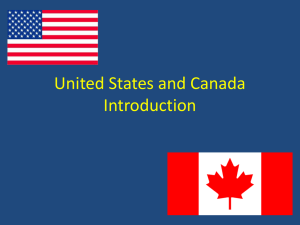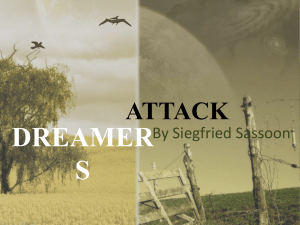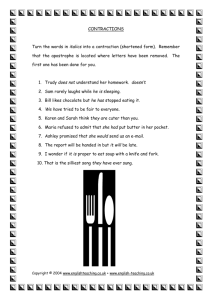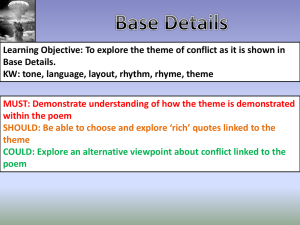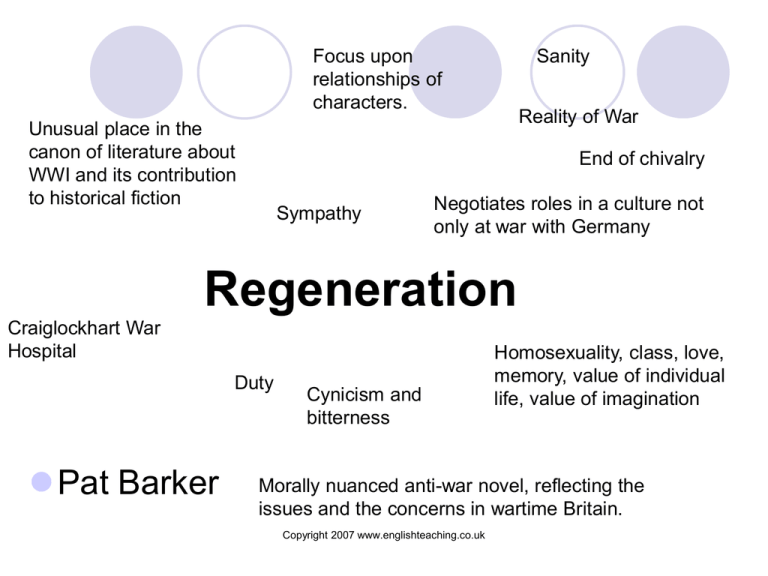
Focus upon
relationships of
characters.
Unusual place in the
canon of literature about
WWI and its contribution
to historical fiction
Sanity
Reality of War
End of chivalry
Sympathy
Negotiates roles in a culture not
only at war with Germany
Regeneration
Craiglockhart War
Hospital
Duty
Pat Barker
Cynicism and
bitterness
Homosexuality, class, love,
memory, value of individual
life, value of imagination
Morally nuanced anti-war novel, reflecting the
issues and the concerns in wartime Britain.
Copyright 2007 www.englishteaching.co.uk
Pat Barker
Born 1943
Influences include her Grandfather who
fought in WW1. He became disturbed with
his experiences in WW1.
Copyright 2007 www.englishteaching.co.uk
Synopsis
Siegfried Sassoon, Wilfred Owen and others
who were treated for 'shell shock' during the first
world war by the psychiatrist and anthropologist
William Rivers at Craig Lockhart hospital in
Scotland.
Dr. Rivers’ work was largely based on his study
of Freud and he introduced Freudian theory and
practise to the British Medical Profession.
http://www.freud.org.uk/warneuroses.html
Copyright 2007 www.englishteaching.co.uk
War Neurosis
‘Shell Shock’ was the term that was commonly used to
describe the symptoms suffered by soldiers following
their experiences in the war.
Thought and perception are severely impaired
Not living in the real world
Experiencing hallucinations
Usually caused by shock, a change in lifestyle, viruses
and even sleep deprivation, to name but a few.
Copyright 2007 www.englishteaching.co.uk
Craiglockhart
Hospital for officers only
Spared ‘typical’ treatments like electric
shocks
Treated through dream analysis,
conversation etc
Patients encouraged to face their war
memories by expressing them
Copyright 2007 www.englishteaching.co.uk
Dr. W.H.R Rivers
Based ‘loosely’ on real doctor (1916-1917)who treated
Siegfried Sassoon and researched nerve ‘regeneration’
Protagonist
Anthropologist – cultures and customs of humankind
Victorian Education
Strong belief in honour
Feels torn between his duty to his patients
Conflict between control and influence over his patients
Journey of realization and increasing doubtfulness about
the reason for the death of an entire generation.
Copyright 2007 www.englishteaching.co.uk
Siegfried Sassoon
1886-1967
Reaction to the war was harsh and vicious
‘Mad Jack’
Reaction through his poetry
spoke out publically against the war, yet
returned to it.
Wilfred Owen
Copyright 2007 www.englishteaching.co.uk
Robert Graves
1895-1985
Poet, scholar and
novelist
Received serious
injuries at the battle of
the Somme
Saved Sassoon from
court martial
Copyright 2007 www.englishteaching.co.uk
Wilfred Owen
•1893-1918
•Shocking, realistic war poetry
•Killed in action at the SambreOise Canal
•Influenced by Sassoon
Copyright 2007 www.englishteaching.co.uk
Themes
Madness
Homosexuality
Parenthood-patients, troops
Regeneration-Healing
Emasculation- Powerlessness that soldiers feel
when confronted with the shocking reality of war
Mutism- Disempowerment and helplessness the
men feel.
Trenches-Graves
Copyright 2007 www.englishteaching.co.uk
River helps Sassoon to resolve
his tension between his two
duties and encourages him to
return to war.
Conflicting duties- Sassoon’s letters
become a duty to covey argument
against war must come at sense of
duty to fellow citizens who are
dying and suffering..
DUTY
He is sympathetic to Sassoon’s view of the war
because he feels constant tensions between his
obligation to make his patients remember
horrifying parts of their pasts and the desire to
prevent further suffering.
Rivers must acknowledge his
increasing sympathy for Sassoon’s
political beliefs
The above is present inside River’s dreams.
His tensions come from his duty as a doctor to
create pain, to prevent pain for fellow humans.
Rivers conflicting duty.
Copyright 2007 www.englishteaching.co.uk
Women (Sarah etc) able to earn more
money in their was work than they could
before.
War offers financial and social freedom.
Trapped by cultural conventions of
gender and class.
Sarah’s mum enjoys financial
security
Not pleased with Sarah’s change
of cultural employment= cultural
limitations troubled by class of
women we meet at factory.
Not to appear sexually
promiscuous-women more
likely to have sexual
encounters i.e. Betty’s
botched abortion
Expected to be male and
female.
Restrictions do not make
it easy.
Women in War
Pre-war
gender roles
Freedom from duties as a wife /
daughter
Class-sex
Sarah not having sex with
Prior. Puts value on herself?
Priors complicated view of
Sarah as a result of multiple /
contradictory roles during the
war. (Sarah is one of the
boys)
Women’s experiences contradict
Prior’s suggestion that there has been
a simple reversal of fortune
Reproduction
appearance
Regeneration: hard working determined
northerners tell the truth.
Lizzie’s banishment of her
husband. - Hatred
Phosphorus
yellow=appearance = class
affiliation
Bound by pre-war gender roles
Copyright 2007 www.englishteaching.co.uk
E.g. Sarah to marry
Suffer at the hands of husbands and
lovers and are relieved to know they
are in the trenches
Extraordinary culture of
war up ends convention. It
requires the exchange of
some feminine qualities for
the expected masculine.
Officers become maternal
figures who provide
‘domestic’ comfort and
emotional support.
Rivers to help escape
Redefinition of
Carnivalesque
shame` of feminine
masculinity
exchange of social behaviour. The social
roles can only take expectation for masculine
place
behaviour. R is treated as
much a mother and a
father
Yealland’s presence is a reminder
for the read that River’s methods
are experimental and amateur,
using electric shocks to make
patients speak appropriately.
Yelland believes that the men who
break down would have broken
Gender Roles
down in any other circumstances
Soldiers are made
feminine by their
experiences
Father – Son = DoctorPatient is intertwined due to
RS practice.
Neurosis – masculinity coming
into conflict with logistics of trench
warfare
Neurosis – masculinity coming into
conflict with logistics of trench
warfare
Rivers believes in neurosis
by conditions of war fare and
it is caused by socialised
gender roles
Rivers engages in conversation
with each patient for several weeks
(Ethnographic skills)
Copyright 2007 www.englishteaching.co.uk
Sassoon warned not to
talk about his pacifist
views as it will be used to
discredit him.
Rivers is concerned about Sassoon’s
future, this warranted as advocating
suppression rather than discussion.
Rivers is different from Yelland. He
has the capacity to analyse his own
culture and his role in that culture
Men who question war was often referred to as a
degenerate, a term for someone who expressed
homosexual behaviour.
Reviews his case files
Changes had taken place without
his knowing.
Clear distinction here- tendencies towards
homosexual love were condemned and often
connected to other anti-social behaviour.
There is a line between
homo-social and
homosexual love.
Rivers is a participant not an
observer of his work
Gender Roles
War gives an emphasis on love
between men (comradeship) and
everybody approves it’s crucial to
survival in war.
Rivers is sympathetic to
homosexuality, others may use
a man’s sexuality to discredit
his views.
Rivers is conventional in his
preference to keep silent on the
subject. Characters in
Regeneration avoid discussing
homosexuality by name. “The love
that dare not speak its name’
Sassoon expresses hope here:
“things were getting better for
homosexuals’
Rivers is wary of homosexuality in
conversation with parents.
Homosexualtiy was considered illegal
from 1885 – 1967
He evaluates himself and
others and how he has
changed by his contact with
his patients
There is an allusive presence that gives a
reminders that outside the hospital any
deviance from the preferred norms of
gendered behaviour will not be tolerated.
Copyright 2007 www.englishteaching.co.uk
There is an allusive presence
that gives a reminders that
outside the hospital any
deviance from the preferred
norms of gendered behaviour
will not be tolerated.

